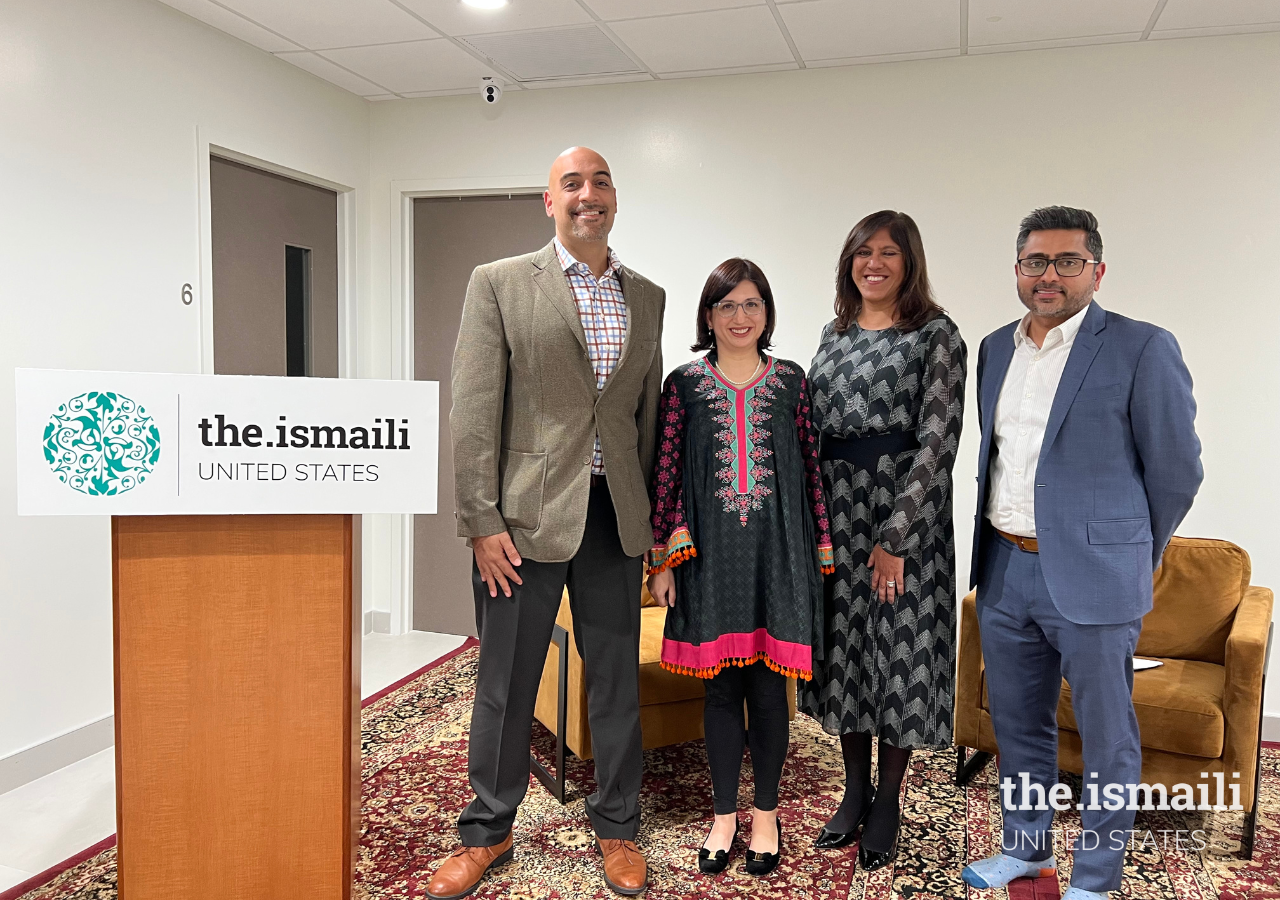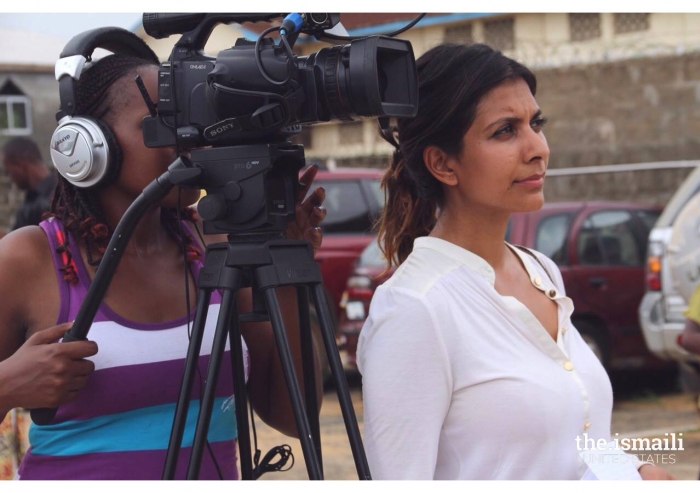In an era marked by environmental challenges and a growing urgency to address climate change, the Green Economy stands out as a beacon of hope and innovation.
Sherina Ebrahim and Faheen Allibhoy explored the transformative potential of sustainable practices and economic ingenuity at the first of a climate business lecture series on November 12th at Washington D.C. Jamatkhana. The event was organized by The Ismaili Professionals Network and the American Ismaili Chamber of Commerce.
Panelists Sherina Ebrahim, a senior partner at McKinsey & Company, and Faheen Allibhoy, global head of Multilateral and Development Banks at J.P. Morgan, provided insights into the key themes shaping the future of our global economy and advancing career opportunities in the green space.
Both panelists, distinguished figures in the realm of sustainability, recently led a thought-provoking discussion on the transformative role of the green economy. With Sherina’s expertise in sustainable development and Faheen’s visionary perspective on clean energy solutions, the event delved into the pivotal impact of environmentally conscious practices in industries worldwide.
Integrating Sustainability into Business Strategies:
Sherina emphasized the imperative of integrating environmental considerations into business strategies. Drawing attention to shifting trends among governments, consumers, and big businesses, she highlighted the increasing demand for sustainable practices. “Younger generations are driving this change, choosing products with sustainable packaging and influencing industries such as transportation and fashion.”
Governments, Sherina noted, play a significant role as catalysts for change, shaping policies such as the Inflation Reduction Act in the US. Businesses, driven by consumer preferences and government mandates, are actively reducing their carbon footprint through initiatives such as mandatory reporting and offset purchasing.
Green Career Opportunities and Industry Evolution:
Faheen provided insights into the evolving landscape of green careers and opportunities within the green space. Noting a shift from a 5:1 to a 2:1 job ratio in the green sector since 2015, she stressed the importance of understanding the jobs of the future. She stated that science and engineering jobs continue to grow, and the impact of climate business extends across various industries, including finance, insurance, academia, education, manufacturing, supply chain, government, and healthcare.
Image 15

Faheen’s recommendation was to enter the green space through consulting, energy technology, entrepreneurship, or obtaining relevant certifications for the Jamat looking for a career shift or who are early in their careers. She acknowledged that “85% of the jobs of the future have yet to be invented.”
Delving deeper into practical opportunities within the green economy, including installing rooftop solar, alternative landscaping, and carbon management, Sherina emphasized that existing businesses can always become greener, urging a continuous commitment to sustainability.
Global Opportunities and Infrastructure Development:
On a global scale, the discussion expanded to focus on emerging markets and the development of smart cities. Faheen highlighted the importance of contributing to building better infrastructure and sustainable waste management in emerging cities. Investors are increasingly supporting greener companies, and employees hold more power as the J.P. Morgan Global Business Head states, “asset managers are constantly recommending sustainable investments to clients.” The call to action extended to governments to accelerate the pace of green energy adoption.
Making Green Energy Affordable:
Addressing the concern of affordability for consumers, both Sherina and Faheen highlighted the current prevalence of cost-effective renewable energy. While energy storage remains a challenge, they expressed optimism, emphasizing that new technologies often start as expensive before becoming more accessible.
Learning from clients and fostering dialogues about green energy were underscored as crucial steps toward gaining knowledge in the field. The panelists’ insights not only shed light on the current state of the green economy but also served as a call to action for individuals, businesses, and governments.
As we navigate the evolving landscape of sustainability, their collective wisdom encourages us to embrace green opportunities, foster innovation, and drive positive change for a more sustainable future.








